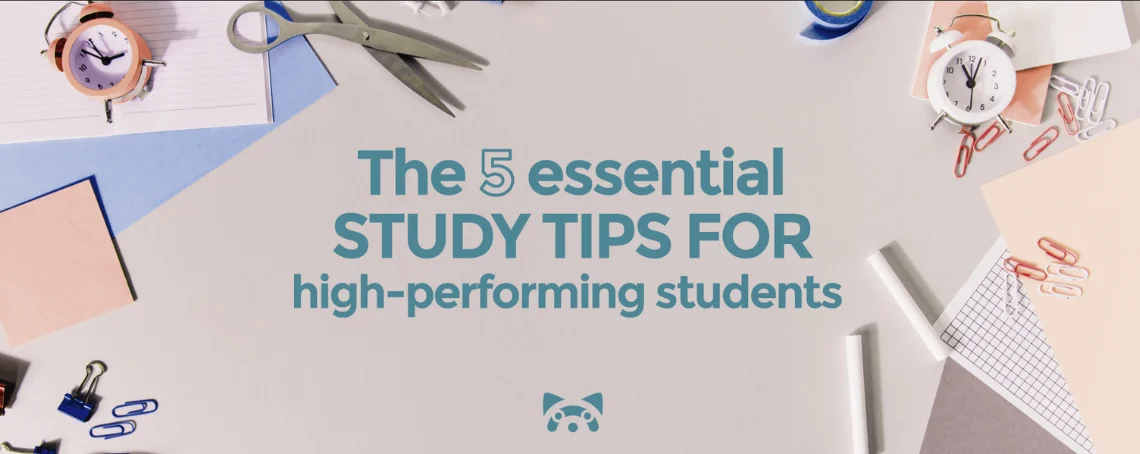There are some students who seem to study less than their classmates, yet somehow do remarkable better. How do they do it? These students have figured out smarter ways to learn, and most often use some or all of the strategies below. Here are some key insights into how to take your studying to the next level.
1. Don’t reread: quiz yourself instead!
Most students tend to study by looking back at their notes or textbook and simply rereading everything. However, research has found that this is a very ineffective study strategy.
Instead of rereading that chapter three times, try turning its key points into questions after your first read. Essentially: make your own test, then quiz yourself! This has been shown to be one of the most powerful study tools for understanding and memorizing information. It forces your brain to dig deep and pull those facts out of your memory. Flashcards are a helpful way to put this tip into practice.
2. Bounce between different subjects over the course of the day.
Another common mistake students make is focusing on only one subject for an entire day. Instead of “diving into” just one course’s work for the day, after a period of studying one subject, try switching to another. This is a process called interleaving, and it teaches your brain to distinguish between the forms of thinking appropriate for each topic.
3. Spread your studying over time
While you may be tempted to cram in all of your studying the two nights before a test, do your best to avoid that habit! Students who study a bit of a subject each day see tremendous improvement over those who try to learn everything at once. This is in part because you do much of your “learning” in your sleep — so the more chances you give yourself to sleep right after studying, the better! Combine this with the interleaving strategy to fit a bit of each subject into every day.
4. Don’t multitask
Unfortunately, juggling several tasks at once doesn’t actually save you time. Multitasking makes you less productive even when you feel like you’re getting things done.
For real productivity, focus on one clear task at a time. Even better, put away your phone, disable any notifications, and close irrelevant browser tabs. Knowing these things are still around in the background takes up valuable brain energy.
5. Exercise!
While this may not be a literal “study” tip, it is just as powerful as the others! Exercising is one of the most effective ways to improve learning. Just like sleep, it cleans your brain of mental garbage and strengthens the connections your brain made while you studied. It pays off to set aside half an hour for a jog, even during finals week.
We trust this list of good practices will be of benefit to you when applying them. If you know of any other tip that you consider valuable to include in this list, go ahead and leave it below in the comment box.


